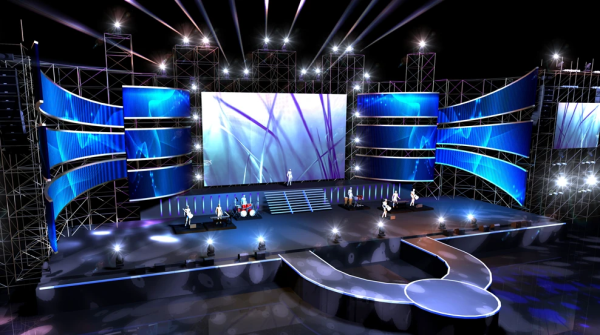In recent years, with the improvement of economy, audiences have higher requirements for auditory experience. Whether watching theatrical performances or enjoying music programs, they all hope to get better artistic enjoyment. The role of stage acoustics in performances has become more prominent, and people have gradually paid attention to it. How to optimize the stage acoustics is a problem that every literary and artistic group must to consider about. This article starts with three key elements of “the tuning quality of the stage tuner, the combination of sound equipment, and the integration of the sound and the stage environment”, and focuses on the three key elements. How to optimize stage sound effects.
The tuner should have professional tuning qualities
1. Owns good technology of sound debugging
As a tuner, you must have a deep analysis and understanding of the music works you are debugging, and combine electronic-acoustic technology with sound technology. For example, use an equalizer to improve the timbre of the original sound; use a reverb and delay to increase intimacy, distance and space; you can also use “doubling” technology to increase the “group sense” of a certain instrument; especially now With the use of digital audio technology, the tuner can modify the sound waves to create the timbre of human voices and musical instruments. According to the vocal characteristics of different actors, they can highlight their vocal advantages and make up for their vocal weaknesses, such as reverberation in a male solo singing. The intensity should be adjusted lower, and the reverberation intensity of the female singer’s solo singing should be adjusted higher, which will make the singing effect better. Only when the tuner has mastered the requirements of different types of stage performance sound, can he grasp the overall stage of the stage and call up the best stage sound effects.

2. Possess good acoustic art accomplishment
The sound art of the tuner directly affects the sound adjustment effect of the stage. The tuner should be familiar with different actors, different musical instruments, and the differences in the vibration frequency and harmonics of sound-producing materials, and be familiar with the narrow frequency bandwidth of various musical instruments and human voices to identify the characteristics and defects of the sound. If a singer sings on the stage with MIDI accompaniment, the tuner will handle his accompaniment. In the same way, the music that goes with the pleasing dance is handled by the tuner. At this time, the stage requires the tuner to apply the contrast of the strength and weakness of the music to the performance on the stage , in order to achieve a perfect performance.
3. Have a good sound debugging psychological quality
Facts have proved that the tuner’s psychological quality is closely related to the stage sound effects. The instability of psychological emotions will reduce cause the tuner’s hearing sensitivity and resolution,and even fail to correctly judge various timbres, which will bring a negative impact to whole stage effect.
Post time: Nov-27-2021
